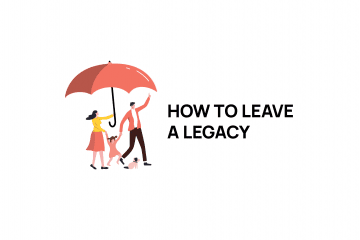Naming a beneficiary for your life insurance policy may seem straightforward, but there’s some gotcha’s that you should be aware of.
Primary vs. Contingent Beneficiary
A more descriptive term might be primary vs. backup. Normally you will provide a list of people to be your primary beneficiary. Frequently the primary beneficiary will be your spouse.
But what happens if your spouse passes away at the same time as you? That’s where we can name contingent or backup beneficiaries. A second beneficiary list can be provided for contingent beneficiaries, the insurance company will pay your death benefits to the people on this list if they cannot pay your primary beneficiary. Your children would be a common choice for secondary beneficiaries.
Revocable vs. Irrevocable Beneficiary
Selecting a beneficiary as irrevocable means you cannot change the beneficiary designation without written permission of the beneficiary. You should never mark a beneficiary as irrevocable unless you are required to do so, and that requirement is extremely rare.

No Beneficiary Available
If the life insurance company cannot pay your beneficiaries, they will by default pay your estate. So if you named your spouse as primary beneficiary, had not named any contingent beneficiaries, and you both pass away at the same time, then the insurance company won’t be able to pay your spouse – and at that point they will simply pay the death benefit to the estate. Any further distribution would then be handled by your will and any estate laws.
Having the insurance company pay your life insurance death benefits to your estate is not something we would normally want to do. Placing a lump sum inside your estate means that the money will likely be subject to extensive delays and additional fees as your estate is probated and run through some legal hoops. If you specifically name individuals, then the money is paid directly to those individuals without delay or additional fees.
Multiple Beneficiaries, One is Deceased
If you have multiple beneficiaries and one of them has predeceased you, the life insurance companies will typically redistribute their portion of the insurance proceeds amongst the remaining beneficiaries.
Benefits of Named Beneficiaries
When you list specific people as beneficiaries, they are known as ‘named beneficiaries’ (as opposed to just naming your estate). With Canadian privacy laws where they are, the insurance companies will not disclose whether they’ve paid a life insurance death benefit, to whom they’ve paid, or for how much. This means that life insurance proceeds are very private. For those seeking to pass some of their inheritance down in a private fashion, life insurance is a perfect vehicle. By contrast, your will is frequently a public document.
A Typical Family Arrangement
If you’re partnered and have children, I suggest the following two alternatives.
If you’re done having children, name your spouse as primary beneficiary and your children as contingent beneficiaries (assuming this is how you want your insurance proceeds paid out).
If you’re considering having further children, name your spouse as primary beneficiary and leave the contingent beneficiary silent (which means your estate). This protects against forgetfulness. If you name your current children, and forget to update your life insurance policy with any future children (and this happens often) then should you pass away only your current children will receive insurance proceeds – your future children will not. Better to leave it flow through your estate (which should then handle all children) and remember to update the contingent beneficiary list once you know you’re done having any more children.
If you have any questions about beneficiary arrangements, feel welcome to contact us at 1-877-344-4011 or book a call with one of our life insurance specialists.




